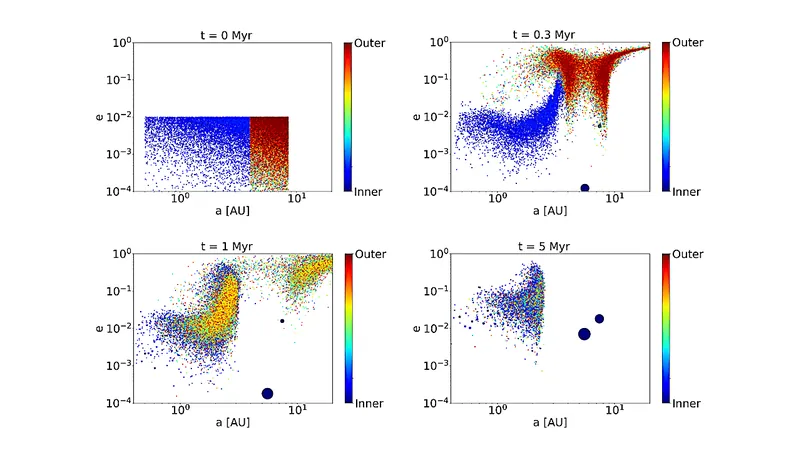
Alarming New Research Links Air Pollution Surges to Schizophrenia Risk!
2024-10-10
Author: Arjun
Recent Groundbreaking Research
Recent groundbreaking research has revealed that short-term surges in ambient air pollution could significantly increase the risk of schizophrenia hospitalizations, raising urgent public health concerns. This nationwide study, conducted across 295 cities in China, analyzed hospitalization records from major health insurance systems between January 2013 and December 2017.
Dr. Shaowei Wu's Insights
Led by Dr. Shaowei Wu from Xi'an Jiaotong University Health Science Center, the research underscores a crucial need for attention to fluctuating air quality. The findings suggest that sustained increases in air pollution over several days may be particularly detrimental to mental health. Dr. Wu and his team noted, 'These findings indicate the importance of monitoring short-term air pollution spikes, especially when they persist, as they could trigger acute schizophrenia episodes.'
Air Pollution as a Risk Factor
Air pollution is already recognized as a significant risk factor for noncommunicable diseases, and this new evidence links it to increased occurrences of mental disorders. Interestingly, acute episodes of schizophrenia have been associated with oxidative stress, a condition potentially exacerbated by temporary spikes in air pollution.
Previous Research Limitations
Previously, research in this area was limited, typically focusing on individual cities or specific populations, which may not capture the broader impact of air pollution on mental health. By examining air pollution increases between neighboring days (known as Air Pollution Increase Days or APIDs), the study shifts attention away from just absolute pollution levels to consider how rapid changes in air quality can impact health outcomes.
Research Methodology and Findings
The researchers utilized real-time data on air pollutants including PM2.5, PM10, nitrogen dioxide, sulfur dioxide, ozone, and carbon monoxide to analyze their effects over time. They discovered that pollution increases lasting between one to four days were particularly damaging. For example, every interquartile range increase in the six-day moving averages of various pollutants corresponded to increases in schizophrenia hospitalizations: by 2.37% for PM2.5, 2.95% for PM10, and up to 4.61% for nitrogen dioxide.
Significant Statistical Relevance
Remarkably, these statistics remained significant even after factoring in absolute pollution concentrations, indicating that the cumulative stress from continued exposure to polluted air could have serious implications for mental health. The team concluded that their findings provide fresh insights into how short and sustained increases in air pollution levels could worsen the risk of schizophrenia episodes, an area previously overlooked in mental health studies.
Call to Action for Air Quality and Mental Health
As urbanization continues to grow and air quality deteriorates in many cities around the world, this research amplifies the urgency for stricter air quality controls and mental health resources. As this issue unfolds, it’s crucial to stay informed and advocate for cleaner air—because your mental health may depend on it!



 Brasil (PT)
Brasil (PT)
 Canada (EN)
Canada (EN)
 Chile (ES)
Chile (ES)
 España (ES)
España (ES)
 France (FR)
France (FR)
 Hong Kong (EN)
Hong Kong (EN)
 Italia (IT)
Italia (IT)
 日本 (JA)
日本 (JA)
 Magyarország (HU)
Magyarország (HU)
 Norge (NO)
Norge (NO)
 Polska (PL)
Polska (PL)
 Schweiz (DE)
Schweiz (DE)
 Singapore (EN)
Singapore (EN)
 Sverige (SV)
Sverige (SV)
 Suomi (FI)
Suomi (FI)
 Türkiye (TR)
Türkiye (TR)